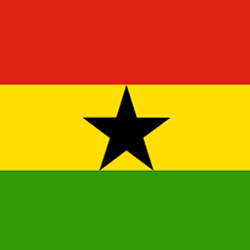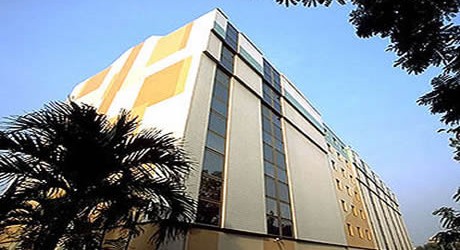Ghana travel guide
 Known as the Gold Coast until independence from British colonial rule in 1957, Ghana boasts 42 European forts and castles including Elmina and Cape Coast Castles, which are all recognised by UNESCO as World Heritage Monuments. The country is bordered by Côte d’Ivoire (Ivory Coast) to the west, Burkina Faso to the north, Togo to the east, and the Gulf of Guinea to the south.
Known as the Gold Coast until independence from British colonial rule in 1957, Ghana boasts 42 European forts and castles including Elmina and Cape Coast Castles, which are all recognised by UNESCO as World Heritage Monuments. The country is bordered by Côte d’Ivoire (Ivory Coast) to the west, Burkina Faso to the north, Togo to the east, and the Gulf of Guinea to the south.
People & Culture
Ghana is blessed with beautiful people and colourful cultural heritage. The Ashanti people and Fante people of the Akan are the dominant groups in Ghana as the Ashanti claimed nearly half of the Ghanaian population. These two groups comprise the largest ethnolinguistic group in Ghana, and one of the few matrilineal societies in West Africa.
The matrilineal system of the Akan continues to be economically and politically important. Each lineage controlled the land farmed by its members, functioned as a religious unit in the veneration of its ancestors, supervised marriages, and settled internal disputes among its members.
Other groups include Ewé people that occupy southeastern Ghana and parts of neighboring Togo and Benin; Mole-Dagbani people, occupying about 15 percent of the nation’s population and situated in the northern part of the country; Guan people; Ga-Adangbe people in the Accra Region, Eastern Region, Togo and Benin.
Language
The official language is English. Local Ghanaian languages are widely spoken, including Akan, Moshi-Dagomba, Ewe and Ga.
Religion
Christian, Muslim and traditional beliefs. All forms of religion have a strong influence on Ghanaian life.
Cities & Towns
Accra, Bolgatanga, Cape Coast, Elmina, Koforidua, Kumasi, Obuasi, Sekondi-Takoradi, Tamale
Best time to visit
Ghana has a tropical climate, hot and humid in the north and in the forest land of Ashanti and southwest plains. There are two rainy seasons in Ghana: from March to July and from September to October, so visits outside of these months is recommended.
[tab: Getting there]
Usually visitors from Western countries do not require a visa to enter Ghana, but it’s advisable to check with your nearest Ghanaian embassy or foreigh office. Nationals of countries such as Egypt, Kenya, Hong Kong, Singapore (up to 30 days), Mauritius and Zimbabwe do not require a visa to enter Ghana. Nationals of Commonwealth East and Southern Africa countries such as Malawi, Botswana, Lesotho, Swaziland, Tanzania, Uganda and Zambia may acquire visa upon arrival at the airport or the border. Citizens of Economic of West African States (ECOWAS) do not require entry permit into Ghana.
Flying to Ghana
Ghana is served by Kotoka International Airport, Accra where all international flights landed and take off. The airport is centrally located and it is served by airport shuttles and taxis are available to connect you to other parts of the city. Accra airport is served by international flights such as United Airlines, Delta Airlines, British Airways, Virgin Atlantic, The Royal Dutch airlines (KLM), Lufthansa, Alitalia, Emirates, Ethiopian Airlines, Egypt Air, South African Airways, Turkish Airlines, Royal Air Maroc, Afriqiyah Airways, Brussels Airlines,
Flight times
From London to Accra is 6 hours 30 minutes, and from New York is 9 hours 30 minutes.
Travel by rail
Ghana does not operate international train connection. All train journeys are within the country.
Driving to Ghana
There is a border at Aflao with Togo where a visa into Ghana can be bought at double the normal cost usually because of the instant issuance. It is advisable for visitors to change their money before crossing, if you need to buy a visa. Ideally, change your money at a bank in Aflao (even better to do it in advance at a ForEx in Accra) or Lomé. One thing to keep in mind while at the border crossings is to keep your cameras stowed in your packs; both Ghanian and Togolese border guards are sure to take your camera if they spot you snapping a photo.
Getting to Ghana by boat
Main ports include Takoradi and Tema. Ships run between Tema and Nigeria, Côte d’Ivoire, Cameroon and South Africa.
[tab: Where to go]
Castles and forts
Indulge in some history. All Ghana’s castles and forts are UNESCO World Heritage Monuments. In particular, do not miss Cape Coast Castle and Fort St Jago. Cultural shows are often performed at the castles and guided tours are available.
Centre for National Culture
Shop till you drop. Crafts, kente and other traditional cloths are for sale at the Centre for National Culture. The Makola Market is a large and busy open-air market attended by traders from surrounding villages. The Osu Night Market is illuminated by hundreds of lanterns and candles.
Fantasy Coffins
Admire some coffins. The carpentry workshops of the world famous Fantasy Coffins are at Nungua. Among the Ga people it is fashionable to be laid to rest in a coffin that bears a relationship to what the deceased did in life.
Ghanaian festival
Attend a Ghanaian festival and enjoy drumming, dancing and feasting. Each region has its own annual festivals for the affirmation of tribal values, the remembrance of ancestors and past leaders, and the purification of the state in preparation for another year.
Go fishing
Go fishing in a local fishing boat. Sport fishing is especially popular. At the mouth of the Volta, anglers have the chance to catch barracuda and Nile perch.
Kakum Nature Reserve
Check out the wildlife in Ghana’s national parks. The Kakum Nature Reserve is a protected conservation area with monkeys, antelopes and water buffalo. Visitors can view wildlife at tree canopy level from the 333m (1,093ft) tree-top walkway and stay in a tree house.
Kete-Krachi
Enjoy a round trip on the car ferry to Kete-Krachi on Lake Volta, the largest manmade lake on earth; alternatively, take the three-day trip to the northern capital of New Tamale at the head of the lake. There are facilities for watersports.
Labadi Pleasure beach
Relax on the beaches of the Atlantic coast. Between them, Labadi Pleasure beach, Kokrobite beach, Coco Beach Resort, Dixcove, Busua and Ada offer tropical palms, spectacular Atlantic breakers and swimming (but beware of the strong currents and tides).
Lake Bosomtwi
Get active on Lake Bosomtwi. It is great for diving, swimming and mountaineering. Take a multi-day canoe trip through the mangrove jungle of the Ankobra River.
Larabanga Mosque
Visit the Larabanga Mosque, situated 8km (5 miles) north of Mole National Park. Built in the style of former Western Sudanese Empires, it houses a holy Koran and is believed by locals to be a ‘God-built mosque’.
Manhyia Palace
Examine the ruins of the Manhyia Palace and the Royal Mausoleum, burnt down by Lord Baden-Powell, in Kumasi, the historic capital of the Ashanti civilisation.
Mole National Park
Explore Mole National Park, the largest and one of the best-equipped nature reserves. Visitors can explore either on foot or 4-wheel drive vehicle, but must always be accompanied by a guide. Camp and discover the area at will.
Mountain hike
Aduklu Mountain hike tours are available through the Ministry of Tourism, and Afadjato Mountain in the Volta region attracts climbers of all ages. Mount Afadjato and Togbo Falls at Liati Wote are excellent for hiking.
National Theatre
Watch a musical show, play or dance at Accra’s National Theatre, which is a Chinese architectural showpiece.
Owabi Forest Reserve and Bird Sanctuary
Bird enthusiasts should go to the Owabi Forest Reserve and Bird Sanctuary, located close to Kumasi. Further to the northeast is the Bomfobiri Wildlife Sanctuary, containing the spectacular Bomfobiri Falls. The salt marshes of the Songow Lagoon are also essential.
Safari
Owabi Wildlife Sanctuary, Bia National Park, Bui National Park, Mole Game Reserve and Kakum Nature Reserve are also all good options for hiking and exploring the savannah and rainforest. The Shai Hills Game Reserve can be explored on horseback.
[tab: Where to stay]
 Hotel Novotel Accra
Hotel Novotel Accra
The Novotel Accra is a 4 star hotel located in the heart of the city and offering spacious and elegant rooms accompany by great services and warm hospitality. Read more
[tab: Gallery]
Not yet posted


